Breast Reconstruction in Monterrey
Search and Compare the Best Clinics and Doctors at the Lowest Prices for Breast Reconstruction in Monterrey

Find the best clinics for Breast Reconstruction in Monterrey
With Medijump you can browse 1 facilities offering Breast Reconstruction procedures in Monterrey. The cheapest price available is $1,823 in Guadalajara
Breast Reconstruction in Mexico
Price: $ 1,823
Breast Reconstruction in Guadalajara
Price: $ 1,823
Breast Reconstruction in Mexicali
Price: $ 2,807
India offers the best prices Worldwide
Price: $ 477
From 2 verified reviews
Rodrigo Cavazos, 09 August 2020
I do not recommend it at all, he has no tact with his clients, I was just going to waste my time
Compare Before & After Photos of _procedure_photos.phpBreast Reconstruction
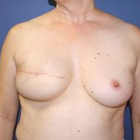
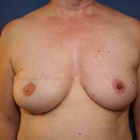
Front view
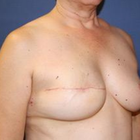
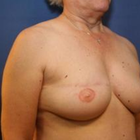
Half-side view
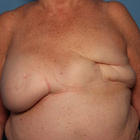
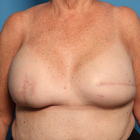
Front view
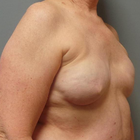
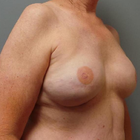
Half-side view
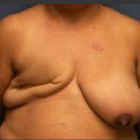
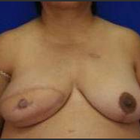
Front view
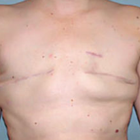
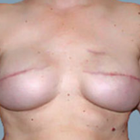
Front view
WHY US?
At Medijump, we're making medical easy. You can search, compare, discuss, and book your medical all in one place. We open the door to the best medical providers worldwide, saving you time and energy along the way, and it's all for FREE, no hidden fees, and no price markups guaranteed. So what are you waiting for?

Free

Best Price

Widest Selection

Risk-Free
What you need to know about Breast Reconstruction in Monterrey
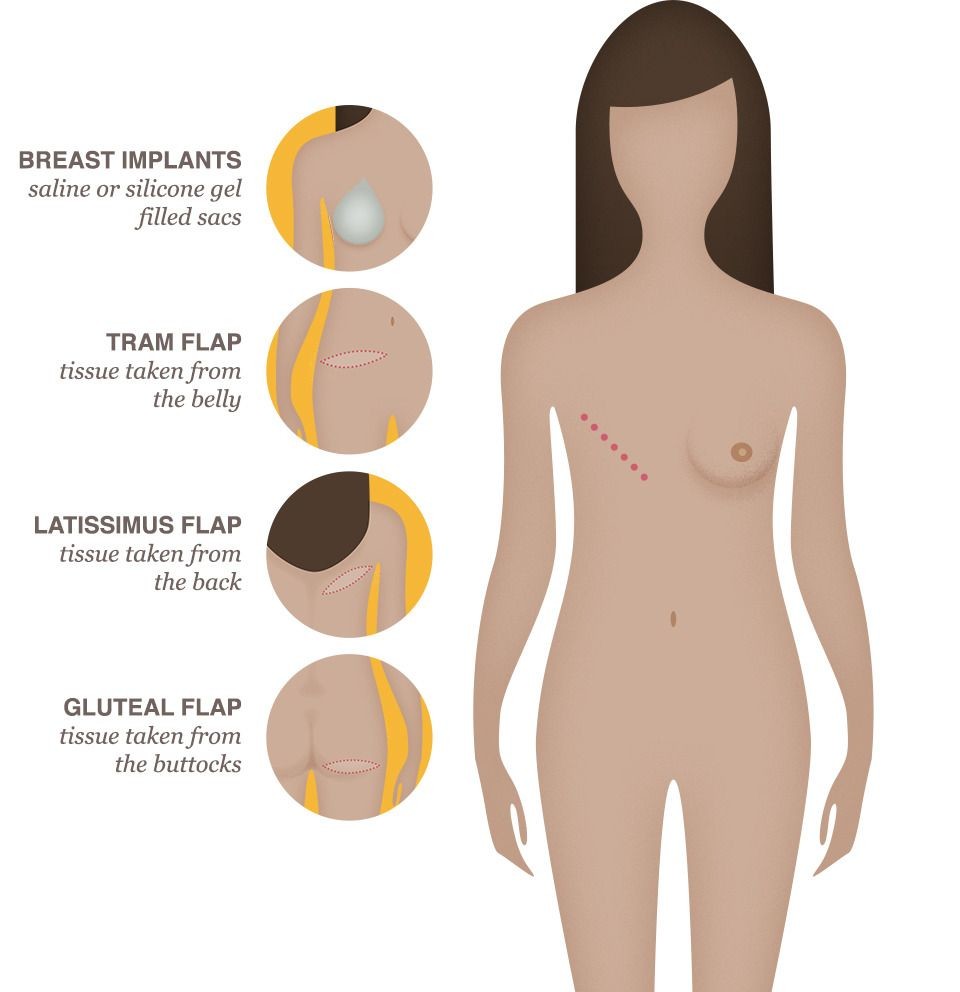
Breast reconstruction is a significant surgery undertaken to rejuvenate the physical form of a woman's chest after losing one or both breasts to cancer or another disease. In Monterrey, medical centres are well-equipped with top-tier talent in plastic surgery to facilitate this intricate procedure. Every woman's journey is different, and her treatment plan is personalized, considering her unique circumstances and needs.
It's heartening to know that breast cancer treatments like chemotherapy or radiation therapy aren't impeded by reconstruction. Moreover, this surgery doesn't spike the risk of cancer coming back. Undeniably, breast reconstruction is a major surgery with inherent risks, including chances of infection, complications with wound healing, and potential dilemmas related to implants.
What is the cost of Breast Reconstruction in Monterrey?
Undergoing surgery like Breast Reconstruction brings along a financial commitment. The expense varies extensively, depending on many factors like the complexity of the procedure, the medical professional performing the surgery, the hospital's facility, and the region, amongst others. Generally, the cost might range between $15,000 to $50,000, including multiple surgeries or intricate techniques within this estimate.
Thankfully, in many cases, insurance plans cover such surgical procedures, especially given mandates like the Women's Health and Cancer Rights Act of 1998 in the U.S. Still, out-of-pocket expenses associated with co-payment or deductibles can add up. It's recommended to navigate these aspects with your insurance provider and your chosen healthcare facility in Monterrey.
What does a Breast Reconstruction Procedure Involve?
Breast reconstruction generally happens in stages, starting with the most complex first, which may either occur at the same time as the mastectomy or later, based on the individual’s specific health conditions or treatment plan.
Two main techniques are employed in breast reconstruction. One is the use of an implant, saline, or silicone to recreate the breast shape. Two, autologous or flap reconstruction where tissue from the patient’s body like the abdomen or thigh is relocated to recreate the breast shape. The method selected is dependent on individual factors like the patient’s health, personal choice, cancer type, and stage.
After the primary surgery and post an adequate healing period, the surgeon performs a second procedure to recreate the nipple and areola. Later, to give it a natural look, the nipple-areola complex is tattooed. Remember that although it is a common procedure, complications might arise involving reaction to anaesthesia, bleeding, infection, poor healing or the need for further interventions.
How Long Should I Stay in Monterrey for a Breast Reconstruction Procedure?
Post-breast reconstruction surgery, patients typically stay in the hospital for two to five days. However, if the reconstruction was done immediately after the mastectomy, the stay could extend from three to six days.
Overall, a patient should expect to remain in Monterrey for approximately two weeks post-surgery. This allows enough time for necessary follow-ups and to address any complications, if they arise. As with any major surgical procedure, do not hasten the healing process.
What's the Recovery Time for Breast Reconstruction Procedures in Monterrey?
The recovery timeframe for breast reconstruction procedures in Monterrey varies from patient to patient. Generally, for implant-based procedures, patients may take about four to six weeks to recuperate before they return to normal routines. For more complex autologous techniques, particularly those using abdominal tissue, patients might require six to eight weeks for recovery.
Recovering patients need to temper their activities during this period. Avoid lifting heavy objects and defer strenuous exercise until your physician gives a clear signal. Medical assistance should be promptly sought if any discomforting symptoms like chronic pain, redness or swelling surface.
What's the Success Rate of Breast Reconstruction Procedures in Monterrey?
Medical success cannot just be measured in terms of complication-free postoperative progress or longevity of implants used in breast reconstruction. Patient satisfaction with their surgery, their psychological well-being following the operation, their perception of body image, and their quality of life post-surgery are equally important factors to consider. Studies indicate that between 85% to 90% of women who have undergone breast reconstruction are satisfied with the long-term results.
In Monterrey, dedicated hospitals and healthcare facilities strive to offer high-quality treatment, ensuring the best possible surgical outcomes using progressive technology and experienced professionals. Still, everyone's response to surgery varies, and outcomes depend on factors such as overall health, age, body type, and compliance with surgical advice.
Are there Alternatives to Breast Reconstruction Procedures in Monterrey?
Indeed, there are alternatives to breast reconstruction in Monterrey. The journey of every woman is unique and how she chooses to deal with the loss of a breast, or both, is a highly personal decision. Alternatives include:
- Breast Prostheses or Forms: They are silicone forms that imitate the appearance and feel of natural breast tissue. They come in diverse sizes, shapes and colours to closely match the woman's skin tone.
- Flat Closure: In this method, the surgeons sew up the chest wound smoothly, without constructing a breast mound. This option appeals to women who choose not to have more surgeries or body implants.
- Opting not to undergo reconstruction at all, also termed as "going flat: This method exhibits the woman's choice to live comfortably with her new body shape without artificial substitutes or further surgeries. It is a fully personal decision deserving respect and support.
Each of these options has pros and cons, and the choice depends on the woman’s personal preference, health status, lifestyle, and perception of her body. Regardless of the choice, it’s important to regularly monitor breast health and engage in practices that promote overall wellness.
What Should You Expect Before and After the Breast Reconstruction Procedure?
Before the surgery, comprehensive discussions with the surgeon will take place to understand treatment objectives, outcomes, and possible complications. Preoperative tests, lifestyle modifications, and nutritional advice may form a part of the preparatory process.
Postoperative care is equally important: discomfort, swelling, and bruising are normal and subside over time. Pain management strategies will be provided to help you manage discomfort effectively. Your surgeon will provide personalised guidance on caring for your surgical site, usage of medications, and physical activities.
What sort of Aftercare is Required for Breast Reconstruction Procedures in Monterrey?
The following points should be considered post-operation:
- Follow the instructions given by your doctor and take your medicines as and when prescribed.
- Consult a nutritionist for a diet plan. A healthy diet helps you recover faster.
- Do not wear a padded or underwire bra until allowed by your doctor.
- Use surgical bras in the early few days after the surgery.
- Avoid excessive unnecessary movement of your breasts.
- Do not lift heavy objects and children - it could stretch on your stitches.
- Change your bandage whenever it gets dirty. Germs can cause infection.
- Do not take a bath when the bandages are still intact. A wet bandage can also be the cause of infection.
- Abstain from sexual activity for at least 6 weeks.
- Take rest - give yourself time to recover.
How Do I Prevent Cancer from Recurring?
Preventing cancer recurrence largely revolves around a balanced, healthy lifestyle coupled with regular medical check-ups. Regular exercise, maintaining a healthy weight, and eating nutritiously can contribute to cancer prevention. Smoke cessation and limiting exposure to secondhand smoke are crucial for both prevention and postoperative recovery.
Regular breast self-examinations, as well as mammograms and follow-up visits, are critical for early detection of any recurrence. Stress management techniques like yoga, meditation, and spending time in nature can also play an essential role in overall health.
Your medical team in Monterrey is there to support you, offering advice tailored to your individual health status and medical history. Remember, proactive health checks are key to maintaining overall health and preventing the recurrence of diseases like cancer.
What is the ideal time to have Breast Reconstruction surgery after a Mastectomy in Monterrey?
The decision regarding when to have Breast Reconstruction following a Mastectomy in Monterrey is largely based on the individual's health status, treatment plan, personal preferences, and discussions with the oncology team. Breast reconstruction can be done at the time of mastectomy (immediate reconstruction) or at a later date (delayed reconstruction). Immediate reconstruction might offer psychological benefits and less overall surgery since both procedures are done together. Yet, if additional treatments such as radiation therapy are required post-mastectomy, opting for delayed reconstruction could be advisable to avoid risks posed by radiation to the new construct.
Remember that deciding on the timing of breast reconstruction is a personal choice and should be made in consultation with your healthcare providers. They can provide specific guidance based on your health condition and treatment plan.
How Will Breast Reconstruction in Monterrey Impact My Routine Mammograms and Breast Cancer Detection?
Breast reconstruction surgery may impact the way routine breast cancer screenings are conducted. After a mastectomy with or without reconstruction, women usually don't need routine screening mammograms on the treated side since all breast tissue has been removed. However, they would need routine mammograms for the untreated breasts.
If you've had reconstruction using your own body tissue, your surgeon or oncologist will guide you on whether or not you'll require mammograms on the reconstructed breast. Remember, mammograms can still be performed on reconstructed breasts, and self-breast exams should be a regular part of your health routine.
Whilst the information presented here has been accurately sourced and verified by a medical professional for its accuracy, it is still advised to consult with your doctor before pursuing a medical treatment at one of the listed medical providers
No Time?
Tell us what you're looking for and we'll reachout to the top clinics all at once
Enquire Now

Popular Procedures in Monterrey
Prices Start From $497

Prices Start From $208

Prices Start From $834

Prices Start From $500

Prices Start From $93

Prices Start From $85

Recommended Medical Centers in Monterrey for Breast Reconstruction

- Interpreter services
- Translation service
- Religious facilities
- Medical records transfer
- Medical travel insurance
- Health insurance coordination
- TV in the room
- Safe in the room
- Phone in the room
- Private rooms for patients available

- Interpreter services
- Translation service
- Religious facilities
- Medical records transfer
- Medical travel insurance
- Health insurance coordination
- TV in the room
- Safe in the room
- Phone in the room
- Private rooms for patients available

- Interpreter services
- Translation service
- Religious facilities
- Medical records transfer
- Medical travel insurance
- Health insurance coordination
- TV in the room
- Safe in the room
- Phone in the room
- Private rooms for patients available

- Interpreter services
- Translation service
- Religious facilities
- Medical records transfer
- Medical travel insurance
- Health insurance coordination
- TV in the room
- Safe in the room
- Phone in the room
- Private rooms for patients available

- Interpreter services
- Translation service
- Religious facilities
- Medical records transfer
- Medical travel insurance
- Health insurance coordination
- TV in the room
- Safe in the room
- Phone in the room
- Private rooms for patients available

- Interpreter services
- Translation service
- Religious facilities
- Medical records transfer
- Medical travel insurance
- Health insurance coordination
- TV in the room
- Safe in the room
- Phone in the room
- Private rooms for patients available

- Interpreter services
- Translation service
- Religious facilities
- Medical records transfer
- Medical travel insurance
- Health insurance coordination
- TV in the room
- Safe in the room
- Phone in the room
- Private rooms for patients available

- Interpreter services
- Translation service
- Religious facilities
- Medical records transfer
- Medical travel insurance
- Health insurance coordination
- TV in the room
- Safe in the room
- Phone in the room
- Private rooms for patients available

- Interpreter services
- Translation service
- Religious facilities
- Medical records transfer
- Medical travel insurance
- Health insurance coordination
- TV in the room
- Safe in the room
- Phone in the room
- Private rooms for patients available
Breast Reconstruction in and around Monterrey
About Monterrey
Nuevo León, a northeastern state in Mexico, takes pride in its capital, Monterrey, a major financial hub for the nation. Serving as a manufacturing and industrial center, Monterrey is also home to a plethora of large Mexican and international businesses. With an impressive GDP (PPP) amounting to US$ 123 billion, it holds the distinction of being the second-most productive city in Mexico. Additionally, its population marking of 5 million residents simultaneously places it as the country's third-most populous city.
Monterrey has successfully carved out a reputation in the tourism sector, particularly drawing global attention as a favored destination for medical tourism. The underlying factors for this growing attraction can be attributed to the following reasons:
- The healthcare industry, banking, and telecommunication are the pillars of the City’s economy.
- The City has some acclaimed hospitals that offer cutting edge treatments. Most hospitals have JCI accreditation, a certification that ensures safety and quality across the healthcare industry.
- Low prices and above-average quality of medical care are the two main reasons that attract medical tourist attention.
- Proximity to the US also provides a big advantage to patients and tourists from the United States of America.
- The most popular procedures are breast augmentation and liposuction and are performed at Dr. Sauceda Plastic Surgery, Dr. Alvar Garcia Plastic Surgery Monterrey, and Dr. David Kirsch M.D. Cosmetic Surgery
Popular Areas in Monterrey
-
The Macroplaza is the largest park in Mexico and is surrounded by many historical buildings and museums. It is a popular spot for locals and tourists alike to relax and enjoy the outdoors.
-
Fundidora Park is a heritage museum and public park that was once home to a steel mill. Today, the park is a popular destination for families and tourists alike, with a variety of attractions including a museum, a zoo, and an amusement park.
-
The Museum of Modern Art displays the works of Ricardo Mazal, Antony Gormley, and Jenny Holzer. The museum is noted for its sculpture yard and restaurant.
-
Cerro de la Silla, Is popular for its great urban hiking trail up the tall mountain for its fantastic view of Monterrey and the surrounding areas.
-
Cerro del Obispado is a historical site that houses a museum and offers panoramic views of the city. It is a popular spot for tourists and locals alike to learn about the history of Monterrey and enjoy the views.
-
To get a glimpse of a traditional wrestling match, Coliseo is the place to be. If you are lucky and brave enough, then you may even get to see a traditional bullfight.
Weather and Climate in Monterrey
It has a dry climate and is one of the hottest cities in Mexico, winters tend to be moderate, while summers can reach high levels of heat. The hot season, which spans from May to September, is often accompanied by rainfall. For the rest of the year, the climate remains mild with relatively minimal temperate fluctuations, and there's hardly any rain during the cold season.
Monterrey can exhibit drastic shifts in its weather scenarios. For instance, a sudden shower during the summer can cool the temperatures down significantly. Conversely, the winter season might witness balmy temperatures in the absence of city-crossing winds. Instances of ice, snow, and sleet are quite the rarity in this region.
Getting around in Monterrey
In Monterrey, there are primarily two airports dedicated to catering a variety of air traffic. The main airport used for commercial flights is Monterrey International Airport. The secondary airport, comparatively smaller, primarily serves private and cargo aircraft traffic. Monterrey International Airport efficiently accommodates a mix of both international as well as domestic travel audiences.
American, United, Delta, and Copa are some of the international airlines that connect it to Houston, Los Angeles, Atlanta, Chicago, Detroit, Dallas, Las Vegas, San Antonio, etc. People can travel to the nearby Mexican cities of Guadalajara, Mexico City, Cancun, Mazatlan, Puerto Vallarta, and Tijuana using Interjet, Aeromar, Magnicharters, and Volaris. At the same time Interjet, Aeromexico, and Viva Aerobus cater to both domestic and international travelers.
Monterrey houses the largest bus terminal in the northern region of Mexico, offering a significant connectivity advantage. Individuals can travel to and from Monterrey and various other bus stations dispersed across Mexico and the US using trans-border buses. Given Monterrey’s closeness to the US-Mexico border, a car ride from the US is another feasible transportation choice.
Moving around within the city is quite feasible and straightforward. Although efficient, the subway system's coverage is relatively limited. The optimum choice for commuting is the taxi service, which may come with a slightly higher cost compared to bus rides. It's advisable to request the driver to go by the meter to guarantee fair charges.
Tourist Visas in Monterrey
Citizens of 67 countries, including Australia, Canada, Schengen countries, the USA, the UK, and Japan, do not need a tourist visa to visit Monterrey, Mexico, for up to 180 days, as long as their trip does not provide any monetary benefit to them. People who have a valid visa to the US and PR in Canada also do not need a separate visa to enter Mexico. The exemption is available to many countries in South America and the Caribbean Islands also. You can check your eligibility on the official website of the Mexican government.
Citizens of other countries will need to obtain a tourist visa to visit Monterrey, Mexico. The tourist visa is valid for six months from the date of entry. You can apply for a visa at the Mexican consulate in your country.
Required documents for a tourist visa:
- Valid passport with at least six months of validity remaining beyond your planned date of departure from Mexico.
- Visa application form.
- Two passport-sized photos.
- Proof of onward travel, such as a return flight ticket.
- Proof of financial resources, such as a bank statement or credit card statement.
- Visa processing fee.
Additional Information
- The local currency used in Monterrey, Mexico, is the Mexican peso (MXN). The exchange rate for the Mexican peso fluctuates daily, but it is currently trading between 20 and 21 Mexican pesos to the euro and 18 to 19 Mexican pesos to the US dollar.
- You can use a credit card for payment at big stores, hospitals, and restaurants. Smaller merchants and establishments may not accept credit cards. Therefore, it is better to carry some local currency. You can also use the ATMs available in the city to withdraw local currency. The use of cards may involve certain transaction charges. Tipping is not compulsory. However, people appreciate some form of tipping; somewhere between 10 to 15 % of the total bill is the norm. Porters also get tipped, say, 10 pesos per bag.
- Mexico Spanish or Castilian Spanish is the main language here. Locals can also communicate in English as well. It would still be an advantage if you can say some basic phrases in Spanish.
- The majority of the people living in Monterrey are Christians.
- Mexicans observe holidays on Christian festivals and some national holidays. Christmas and New Year’s Day are the two main public holidays. Independence Day on 16th September and Revolution day on the third Monday of November are the two main national holidays. Apart from this, there are many other holidays.
Popular Searches
- Plastic Surgery in Thailand
- Dental Implants in Thailand
- Hair Transplant in Thailand
- Breast Augmentation Thailand
- Gastric Sleeve in Thailand
- Gender Reassignment Surgery in Thailand
- Laser Hair Removal in Bangkok
- Botox in Bangkok
- Dermatology in Bangkok
- Breast Augmentation in Bangkok
- Coolsculpting in Bangkok
- Veneers in Turkey
- Hair Transplant in Turkey
- Rhinoplasty in Turkey
- Stem Cell Therapy in Mexico
- Rhinoplasty in Mexico
- Liposuction in Mexico
- Coolsculpting in Tijuana
- Rhinoplasty in Korea
- Scar Removal in Korea
- Gastric Sleeve in Turkey
- Bone Marrow Transplant in India
- Invisalign in Malaysia
- Plastic Surgery in the Dominican Republic
- Tummy Tuck in the Dominican Republic
- Plastic and Cosmetic Surgery in Poland
- Rhinoplasty in Poland
- Hair Implant in Poland
- Dental Implants in Poland
- IVF in Turkey
